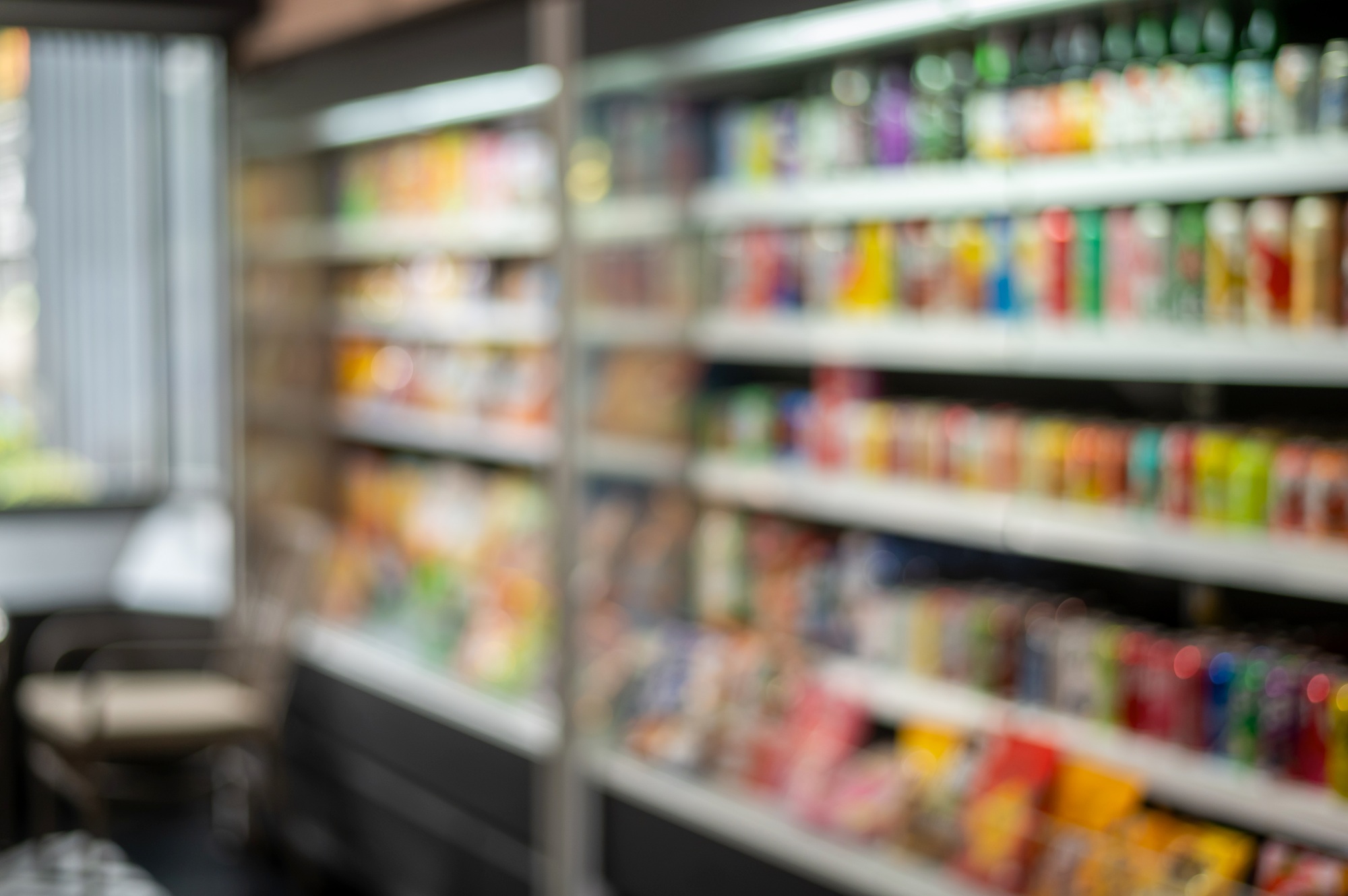Follow Me
Latest posts by MRPMWoodman (see all)
- Free History 7-Eleven 2025 - April 30, 2025
- Free History 7-11 Japan 2025 - April 30, 2025
- Free History 7-11 Thailand 2025 - April 30, 2025
Free History of Iceland 2025
The History of Iceland Supermarket
Introduction
Iceland Foods Limited, trading as Iceland, is a British supermarket chain headquartered in Deeside, Wales. Renowned for its focus on frozen foods, Iceland has carved a unique niche in the highly competitive UK retail sector. Since its inception in 1970, the company has grown from a single store in Oswestry, Shropshire, to a network of over 1,000 stores across the UK and beyond. Its journey is marked by innovation, resilience, and a commitment to affordability, quality, and sustainability. This detailed history explores Iceland’s origins, growth, challenges, and evolution into a modern retail powerhouse, spanning over five decades of transformative change.
The Founding Years: 1970–1979
Iceland Foods was founded in 1970 by Malcolm Walker and Peter Hinchcliffe, two young entrepreneurs working at Woolworths. With a modest investment of £60 to cover one month’s rent, they opened their first store on Leg Street in Oswestry, Shropshire. At the time, domestic freezers were becoming more common in UK households, creating a growing demand for frozen foods. Iceland seized this opportunity, specializing in loose frozen food, a novel concept compared to the packaged goods that would later dominate the market. The store’s early offerings included frozen vegetables, meat, and ready meals, sold directly from chest freezers.
Walker and Hinchcliffe’s side venture was not without risks. When Woolworths discovered their entrepreneurial endeavor, both were sacked, forcing them to focus entirely on Iceland. This setback proved to be a blessing in disguise, as it allowed them to dedicate their energies to expanding the business. By 1975, Iceland had opened 15 stores across North Wales and the North West of England, capitalizing on the region’s appetite for affordable frozen goods. The company’s early success was driven by its low-cost model and the growing popularity of frozen food, which offered convenience to busy households.
In 1977, Iceland opened a significant store in Manchester, marking its first foray into a major urban market. This store introduced own-labeled packaged food, a shift from loose frozen goods that improved convenience and branding. By 1978, the company operated 28 stores, and in 1979, it opened its first freezer center in Stretford, a dedicated retail format focused on frozen food storage and sales. These early years laid the foundation for Iceland’s growth, establishing it as a pioneer in the frozen food retail sector.
Expansion and Innovation: 1980–1989
The 1980s were a period of rapid expansion and innovation for Iceland. The company capitalized on the UK’s increasing adoption of home freezers and the demand for convenient, affordable food. By 1984, Iceland had grown sufficiently to list on the London Stock Exchange, a milestone that provided capital for further expansion. The public listing underscored Iceland’s growing prominence in the retail sector, positioning it as a serious competitor to established supermarkets.
A pivotal moment came in 1989 when Iceland acquired Bejam, its primary competitor in the frozen food market. Bejam was three times the size of Iceland, with a national network of stores. The acquisition, valued at £68 million, catapulted Iceland to a national presence, increasing its store count to 465 and giving it a significant market share. The integration of Bejam’s stores and infrastructure was a complex process, but it solidified Iceland’s position as the UK’s leading frozen food retailer.
During this decade, Iceland also began to innovate its product offerings. In the mid-1980s, the company led the industry in removing artificial colorings, flavorings, non-essential preservatives, and monosodium glutamate from its own-brand products. This commitment to healthier food options was ahead of its time, as competitors like Tesco and Sainsbury’s would not adopt similar measures until years later. Iceland also introduced genetically modified (GM)-free ingredients in its own-brand products, further distinguishing itself in a crowded market.
Growth and Challenges: 1990–1999
The 1990s were a transformative decade for Iceland, marked by both significant growth and intense competition. By 1996, the company operated 752 stores and had achieved 25 years of consecutive profit growth. However, the supermarket sector was becoming increasingly competitive, with larger chains like Tesco, S³⁸⁴⁹⁸⁴Sainsbury’s, and Asda expanding their market presence. To stay competitive, Iceland introduced several innovations, including a free nationwide home delivery service, launched at the end of the decade. This service, which allowed customers spending £25 or more to receive free same-day delivery, was a game-changer in the retail sector, enhancing customer convenience and loyalty.
Iceland also expanded its private-label brand under the “Food You Can Trust” banner, introducing a wide range of new products, including organic and GM-free options. The company’s focus on own-label goods allowed it to maintain competitive pricing while ensuring quality control. Additionally, Iceland began experimenting with non-frozen grocery items, such as produce, meat, dairy, and dry goods, to broaden its appeal.
Despite these successes, the 1990s brought challenges. The rise of Sunday trading and extended store hours increased operational costs, while larger supermarkets began encroaching on the frozen food market. Iceland’s response was to continue innovating, but the pressure to maintain profitability in a rapidly changing retail landscape was immense.
Mergers and Turbulence: 2000–2005
The early 2000s were a tumultuous period for Iceland. In May 2000, the company merged with Booker plc, a wholesaler, in an attempt to leverage Booker’s buying power to reduce costs. Stuart Rose, a seasoned retail executive, was appointed CEO of the merged entity, named the Big Food Group in 2002. However, Rose’s tenure was short-lived, as he left for the Arcadia Group in November 2000. He was replaced by Bill Grimsey in January 2001.
The merger with Booker proved challenging, and Iceland faced financial difficulties. In 2001, Malcolm Walker, the company’s founder, was forced to stand down after selling £13.5 million in shares just weeks before a profit warning, sparking controversy. The Big Food Group struggled to maintain profitability, and by 2003, sales were declining. The company attempted to refocus on the convenience sector with a bid for Londis, but the strategy failed to reverse its fortunes.
In February 2005, a consortium led by the Icelandic investment group Baugur acquired the Big Food Group, marking a turning point for Iceland. The acquisition allowed Iceland to demerge from Booker and return to its core focus on frozen food retail. Malcolm Walker was reinstated as chairman, bringing renewed leadership and vision to the company.
Recovery and Modernization: 2006–2012
Under Walker’s leadership, Iceland embarked on a remarkable recovery. In 2005, the company launched a high-profile advertising campaign featuring celebrity Kerry Katona and the slogan “That’s why mums go to Iceland!” The campaign resonated with consumers, and by March 2006, Iceland reported a 20% increase in sales, making it the fastest-growing food retailer in the UK. The recovery was bolstered by investments in store refurbishments and a staff morale initiative that included a trip to Disneyland Paris for 600 store managers.
In 2006, Iceland introduced “round sum pricing,” rounding product prices to the nearest 25p to simplify transactions for customers. The company also expanded its home delivery service, offering free next-day delivery for online orders over £40. These customer-centric initiatives helped Iceland regain market share and rebuild its reputation.
By 2012, Iceland achieved a significant milestone when Walker and CEO Tarsem Dhaliwal led a £1.55 billion management buyout of the 77% stake held by Icelandic banks, which had collapsed during the 2008 financial crisis. This buyout restored full control to Iceland’s founding family and management, setting the stage for further growth.
Sustainability and Social Responsibility: 2013–2018
In the 2010s, Iceland positioned itself as a leader in sustainability and social responsibility. In 2013, the company reintroduced online shopping, which had been discontinued in 2007, and by 2014, it had launched a new, user-friendly website. The same year, Iceland opened its first The Food Warehouse store, a larger-format retail concept offering bulk-buy options and exclusive brands like Slimming World and Greggs.
In 2018, Iceland made headlines by becoming the first major UK supermarket to pledge to eliminate plastic packaging from its own-label products by 2023. The company also banned palm oil from its own-brand products due to its environmental impact, a move that sparked both praise and controversy. Iceland’s “Rang-tan” Christmas advert, highlighting the deforestation caused by palm oil production, was viewed over 70 million times online but was denied TV broadcast due to its political content.
Iceland’s commitment to sustainability extended to carbon reduction, with a 2020 report revealing a 74% decrease in emissions since 2011. The company joined the Climate Pledge, committing to net-zero carbon by 2040, and introduced reverse vending machines for plastic bottle recycling, processing 311,500 bottles by the end of 2018.
Trademark Dispute with Iceland (Country): 2016–Present
One of Iceland’s most publicized challenges has been its trademark dispute with the Icelandic government. In 2002, Iceland Foods applied to trademark the word “Iceland” in the EU, securing registration in 2014 despite opposition from Iceland the country. The retailer’s name, derived from its frozen food focus, led to tensions when it attempted to block Icelandic entities, including the tourism board’s “Inspired by Iceland” campaign, from using the term.
In 2016, the Icelandic government challenged the trademark, arguing that a country’s name should not be exclusively owned by a private entity. The dispute escalated in November 2016 when Iceland filed a legal challenge with the European Union Intellectual Property Office (EUIPO). In April 2019, the EUIPO invalidated Iceland’s trademark, ruling that the name was too broad and ambiguous. Iceland appealed the decision, and in September 2022, the EUIPO’s Grand Board of Appeal held a public hearing. In December 2022, the court reaffirmed restrictions on Iceland’s use of the trademark, but the retailer, led by Richard Walker, vowed to continue defending its intellectual property rights.
The ongoing dispute highlights the complexities of trademark law and the unique challenge of a company sharing a name with a sovereign nation. While Iceland Foods maintains that its brand refers to the “land of ice” rather than the country, the legal battle remains unresolved, with potential implications for both parties.
Recent Developments: 2019–2025
Since 2019, Iceland has continued to innovate and expand. The company celebrated its 50th anniversary in 2020, marked by a visit from HRH The Prince of Wales to its Deeside headquarters. During the COVID-19 pandemic, Iceland created 3,500 new jobs to meet surging online shopping demand and introduced priority shopping periods for the elderly and vulnerable, earning praise for its community focus.
In 2020, Malcolm Walker and Tarsem Dhaliwal completed the buyout of South African investment company Brait’s 63.1% stake, restoring 100% ownership to Iceland’s founding family and management. The company also launched a £80 million investment in a new Warrington distribution center, set to begin deliveries in 2025, and appointed Paul Cowley MBE as its first Director of Rehabilitation to offer employment opportunities to prison leavers.
Iceland’s commitment to affordability has been evident in its response to the cost-of-living crisis, with price cuts and market-leading promotions. The company also reduced the price of branded infant formula to the lowest in the UK and supported campaigns for regulatory changes in the sector. In 2021, Iceland was named the UK’s top supermarket for customer satisfaction by the Institute of Customer Service, a testament to its customer-centric approach.
Leadership and Culture
Iceland’s success is closely tied to its leadership and workplace culture. Malcolm Walker, knighted in 2017 for his contributions to retail, has been a driving force behind the company’s resilience and innovation. His son, Richard Walker OBE, serves as Executive Chairman and has been instrumental in advancing Iceland’s sustainability agenda, including climbing Mount Everest in 2023 to raise £1.1 million for a Rare Dementia Support Centre.
CEO Tarsem Dhaliwal, who joined Iceland in 2001, has overseen seven consecutive years of sales and profit growth from 2005 to 2012, transforming a loss-making business into one generating £230 million in EBITDA by 2012. Dhaliwal’s strategic vision emphasizes long-term growth over short-term gains, encapsulated in Iceland’s “Doing It Right” philosophy.
Iceland’s workplace culture is built on accessibility and recognition. Directors engage with colleagues through monthly “Our Business” meetings, and employees are celebrated through initiatives like the “Doing it Right” card and First Class Service Awards. The company’s “Your Wellbeing” campaign provides 24/7 support for employees’ physical and mental health, contributing to its 1 Star accreditation from Best Companies.
International Presence
While primarily a UK retailer, Iceland has expanded internationally through franchise agreements. In 1998, the company began supplying own-brand products to supermarkets in Malta, opening stores in Birkirkara (2015), Mosta, Qawra, and Marsascala (2018). Unlike UK stores, Malta locations emphasize non-frozen items, including fresh produce and bakery sections. Iceland also operates in over 65 countries, including the Republic of Ireland, Spain, and the Czech Republic, with a growing presence in the EU and EEA.
Conclusion
Iceland Foods’ history is a story of entrepreneurial grit, innovation, and adaptability. From its humble beginnings in 1970 to its status as a leading UK retailer, Iceland has navigated economic challenges, competitive pressures, and legal disputes while staying true to its mission of providing affordable, quality food. Its pioneering efforts in sustainability, customer service, and employee welfare have set industry benchmarks, earning it accolades and customer loyalty.
As Iceland looks to the future, its focus on digital innovation, environmental responsibility, and community engagement positions it for continued success. With over 1,000 stores, 25,000 employees, and a legacy of “Doing It Right,” Iceland remains a unique and enduring force in the retail landscape, proving that a commitment to value and values can withstand the test of time.






